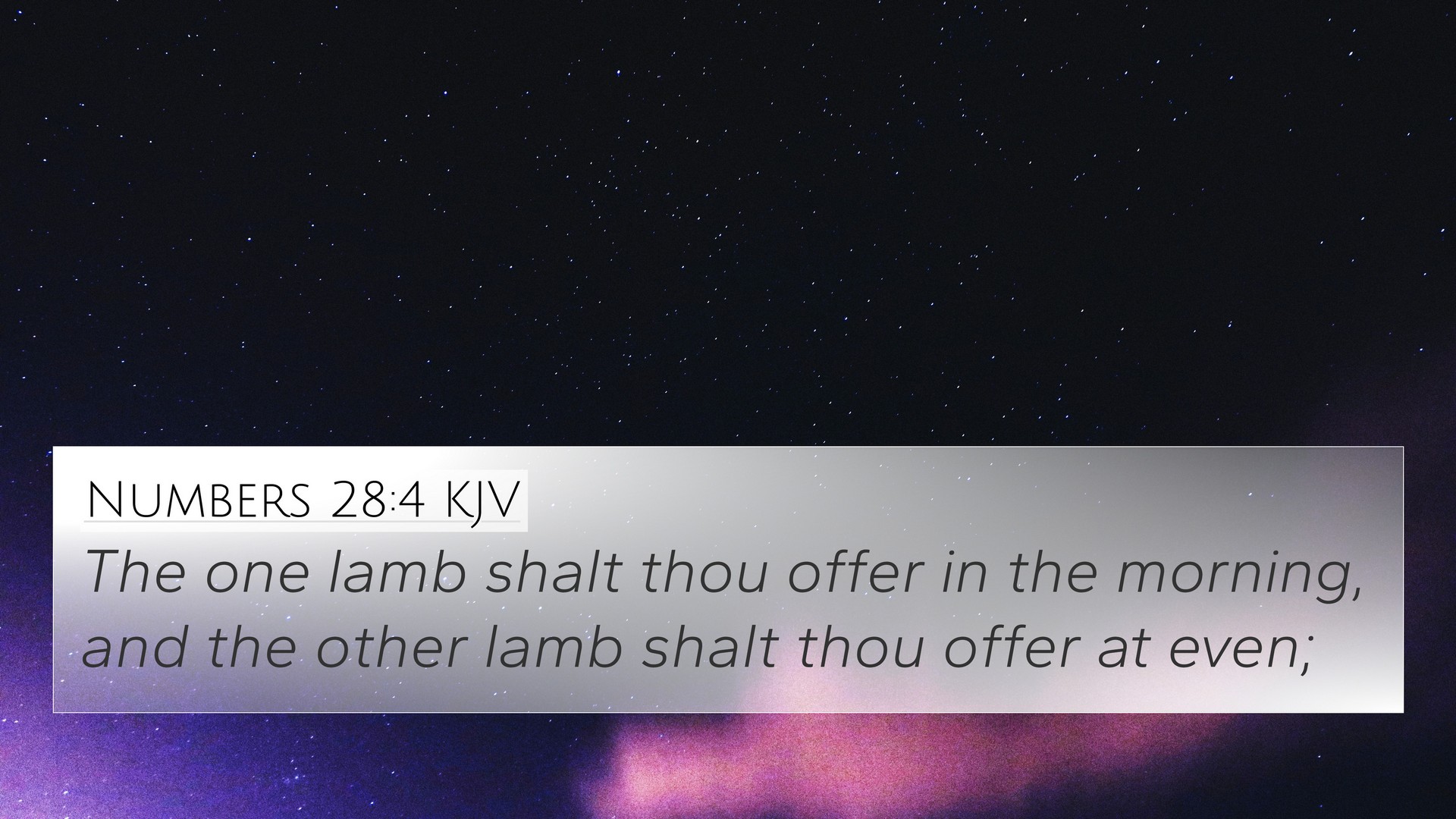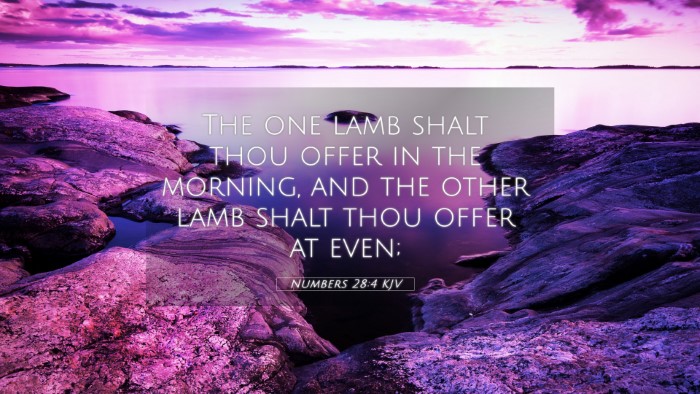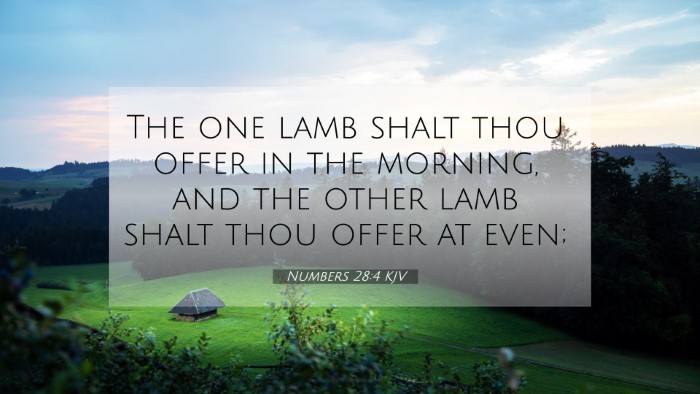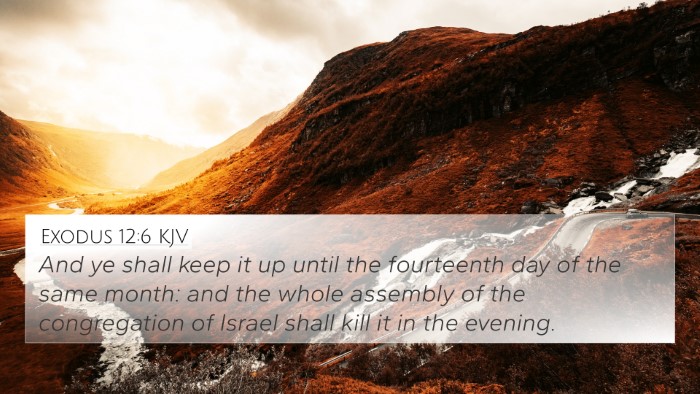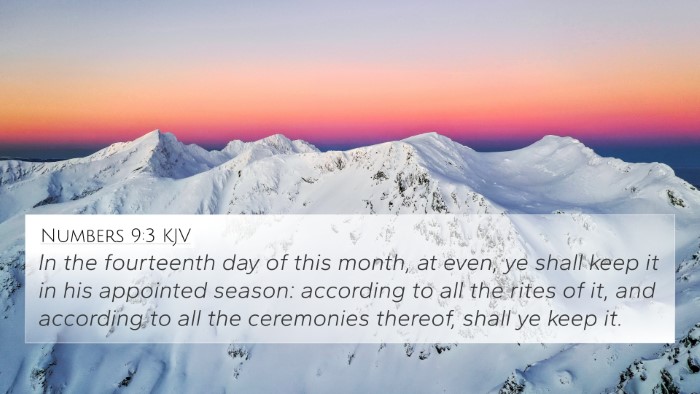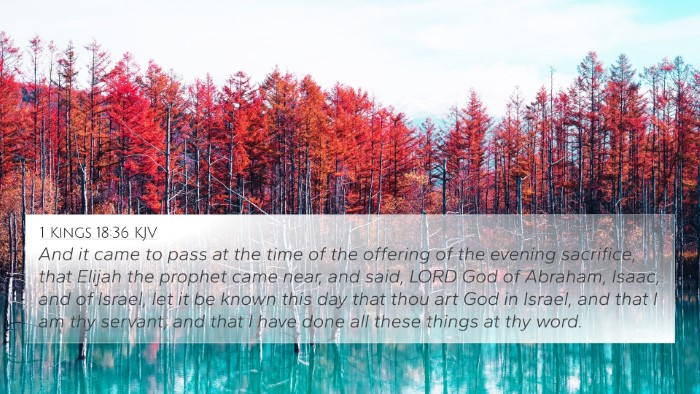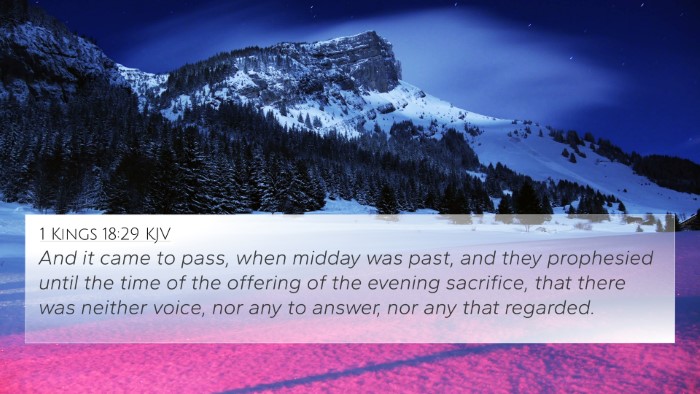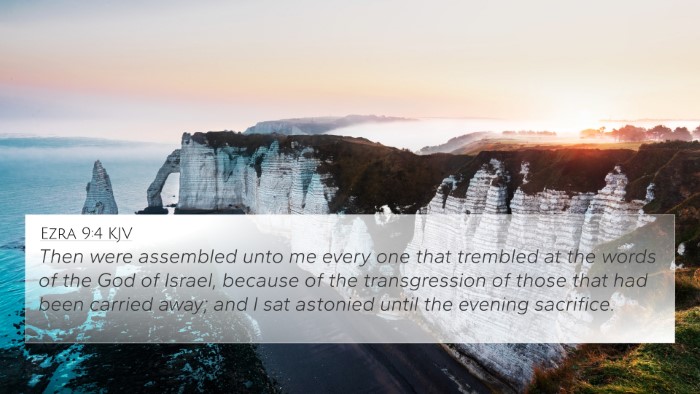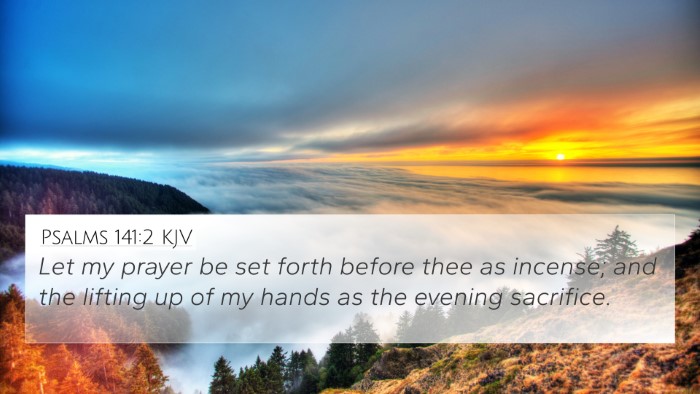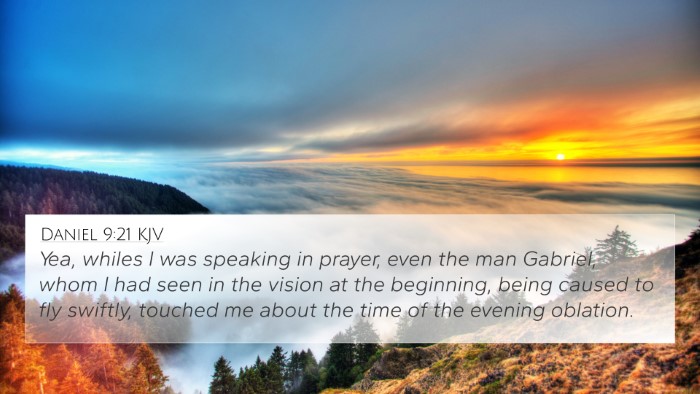Understanding Numbers 28:4
Numbers 28:4 states: "And the one lamb shalt thou offer in the morning, and the other lamb shalt thou offer at even.". This verse provides specific instructions regarding the daily offerings in the context of the Levitical law. It emphasizes the importance of consistent worship and daily devotion as prescribed by God for the Israelites.
Summary of Biblical Commentary
This verse, while seemingly simple, carries immense significance regarding the consistent devotion to God’s commandments. Various public domain commentaries elucidate its meaning:
- Matthew Henry: Henry emphasizes the importance of the daily offerings as a means to know God's grace continuously. He draws attention to the principle of daily sacrifice, suggesting that just as Israelites were committed to their rituals, believers today should remain steadfast in their spiritual practices.
- Albert Barnes: Barnes comments on the ritual aspect of the offerings, highlighting them as a form of worship that pays homage to God's sovereignty. He points out how these offerings signify dependence on God’s provision and the need for atonement.
- Adam Clarke: Clarke provides an elaborate explanation of the two lambs, correlating them to the morning and evening worship services. He suggests these regular sacrifices create a rhythm of prayer and dedication to God, a practice valuable for spiritual consistency.
Thematic Connections and Cross-References
Numbers 28:4 can be understood through several thematic Bible verse connections, highlighting the consistency of worship and God's provision throughout scripture. Below are some relevant cross-references:
- Exodus 29:38-42 - Details the ritual of sacrifices for daily offerings.
- Psalms 55:17 - Reflects on evening and morning prayers, showcasing the practice of constant fellowship with God.
- Mark 1:35 - Jesus' habit of early morning prayer mirrors the offering in Numbers, indicating the importance of starting the day focused on God.
- 1 Peter 2:5 - Refers to all believers as a holy priesthood, emphasizing that regular sacrifices of praise should be continuous in a believer's life.
- Hebrews 13:15 - Calls believers to continually offer the sacrifice of praise, reinforcing the practice of regular worship.
- 1 Thessalonians 5:17 - Encourages believers to pray continually, echoing the themes of persistent worship found in the sacrificial system.
- Revelation 5:8 - The concept of prayers as incense, which connects to the significance of offerings and worship in both testaments.
Tools for Bible Cross-Referencing
Understanding Numbers 28:4 in the broader context of scripture can be facilitated by various tools for Bible cross-referencing:
- Bible Concordance: Helps locate key themes and passages related to specific words or subjects.
- Bible Cross-Reference Guide: Aids in identifying verses that relate to others based on themes or specific words.
- Cross-Reference Bible Study: Integrates various scripture passages to reinforce understanding of a particular topic.
- Bible Reference Resources: Numerous resources are available, such as compendiums and study Bibles that provide cross-references.
- Bible Chain References: A method of linking verses that flow together to build on a specific doctrinal point or theme.
Comparative Study and Inter-Biblical Dialogue
Through comparative Bible verse analysis, connections can be identified between Old and New Testaments that enhance understanding of Numbers 28:4:
- Identifying connections: Understanding how Old Testament practices of sacrifice inform New Testament teachings can enrich spiritual practices today.
- Detailed cross-reference between Gospels: Analyzing how Jesus embodies the principles found in Numbers can generate deeper insights into Christian living.
- Cross-referenced themes: Exploring the thematic elements of sacrifice across scriptures highlights the continuity of God's redemptive plan.
Conclusion
In conclusion, Numbers 28:4 serves as a pivotal verse that underscores the importance of daily worship and sacrifice, drawing connections across various biblical texts. Through a thorough cross-referencing of scripture, one can gain a richer understanding of worship practices that transcend generations and continue to resonate in contemporary faith.
